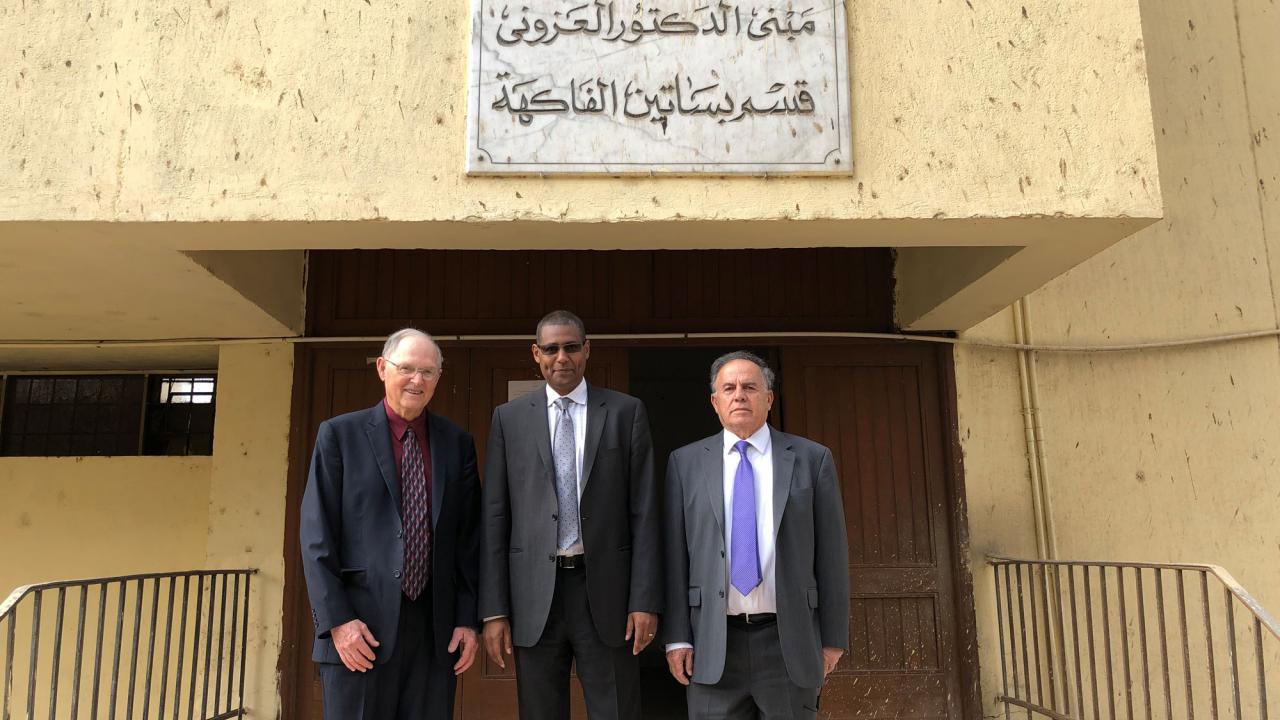
USAID project helps UC Davis continue long tradition of agricultural development in Egypt
UC Davis recently joined a project funded by the U.S. Agency for International Development (USAID) to bring agricultural expertise and training from four American land-grant universities to agricultural universities in Egypt.
The five-year, $30 million project will establish a Center of Excellence for Agriculture at Cairo University. The goal is to equip faculty and students with the tools to make an impact as research scientists, employees, policymakers and innovators in Egyptian agriculture.
Led by Cornell University, partnering land-grant universities will engage across the scope of activities in different initiatives: UC Davis for programs in high-quality, applied research; Purdue University for programs in instructional innovation and curriculum development; and Michigan State University for training programs and scholarship development. The UC Davis principal investigator on the project is Professor Kassim Al-Khatib of the Department of Plant Sciences.
Partners on the Egyptian side include Benha University, Suez Canal University, Assuit University and Ain Shams University, although all 27 Egyptian agricultural universities are encouraged to participate.
Sathguru Management Consultants, along with UC Davis’ Public Intellectual Property Resource in Agriculture (PIPRA) program, will work with Egyptian universities to facilitate technology transfer and commercialization of university research products.
“We are honored to participate in this ambitious project to advance agriculture in Egypt,” said Ermias Kebreab, associate dean for global engagement in the College of Agricultural and Environmental Sciences (CA&ES). “UC Davis has a long history of working with the Egyptian agricultural community to help modernize production and marketing. We look forward to collaborating in this new effort with our land-grant colleagues and our partners in Egyptian higher education to help them achieve their long-term goals for agricultural development.”
With its similar agriculture and long-time engagement in Egypt, UC Davis will bring its expertise in horticultural cropping systems, irrigation, postharvest technology and other areas that match the Egyptian 2030 goals for agriculture. The project will provide $4 million in research projects to be jointly awarded to the U.S. and Egyptian partners. Other aspects of the project include scholarly exchanges of students and faculty to improve curricula, create more hands-on classrooms and develop workforce-ready graduates in both undergraduate and graduate programs.
“We are pleased to be the lead institution for the Center of Excellence for Agriculture in Egypt,” said Mohamed Othman El-Khosht, president of Cairo University. “These initiatives will prepare our faculty and students to thrive in Egypt’s growing economy, not only by the courses they take, but by how they approach research partnerships with private industry, and by how they innovate and stimulate the Egyptian agricultural sector.”
“Over many years, our faculty have engaged with Egyptian universities and national research programs to build organizational capacity, business skills, technical knowledge, marketing intelligence and policy in Egypt,” said Jim Hill, former CA&ES associate dean for international programs. “By building capacity in Egyptian universities to meet the demands of the private sector, we are creating partnerships that strengthen Egyptian agriculture, as well as building goodwill between our nations.”